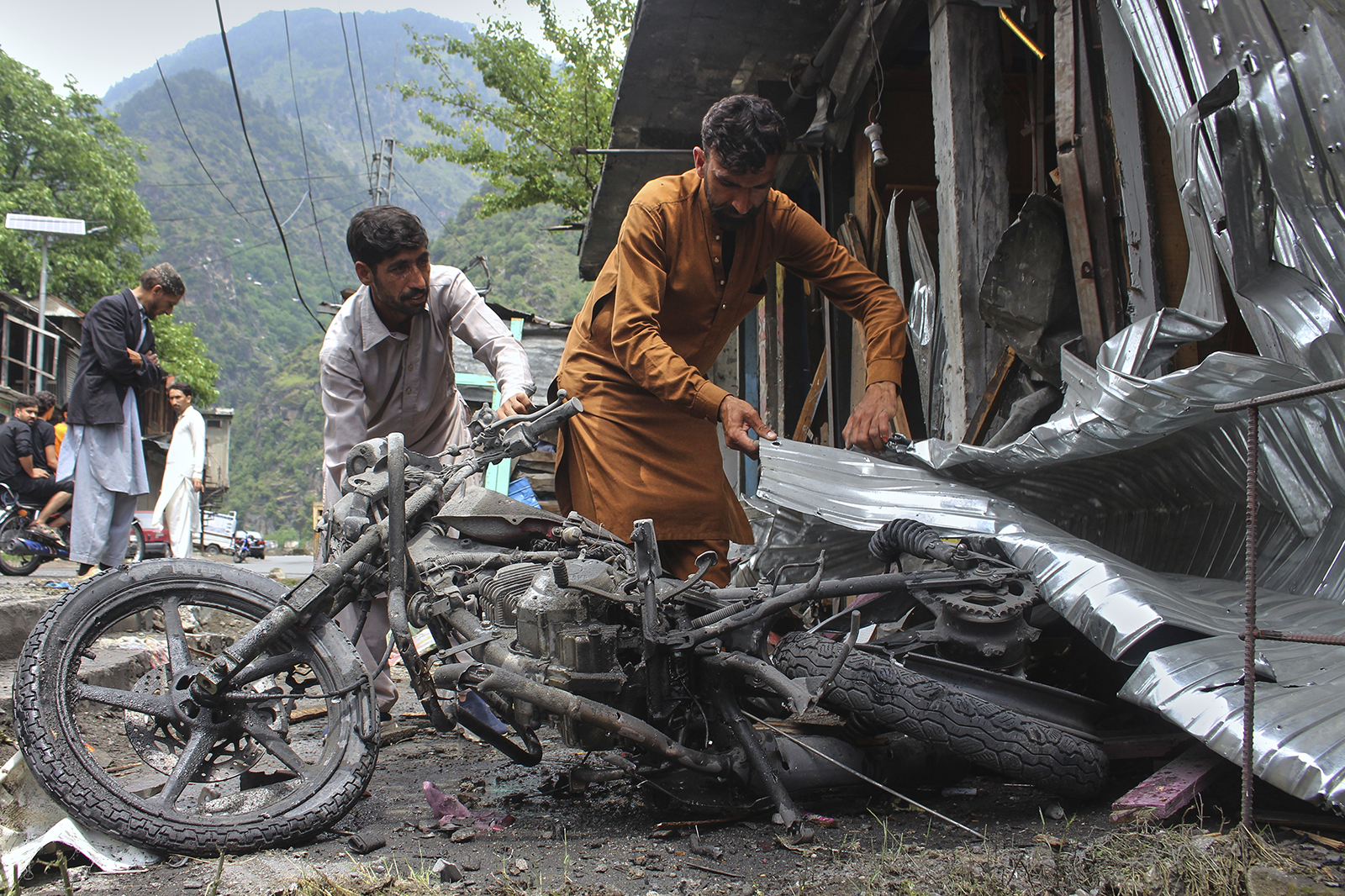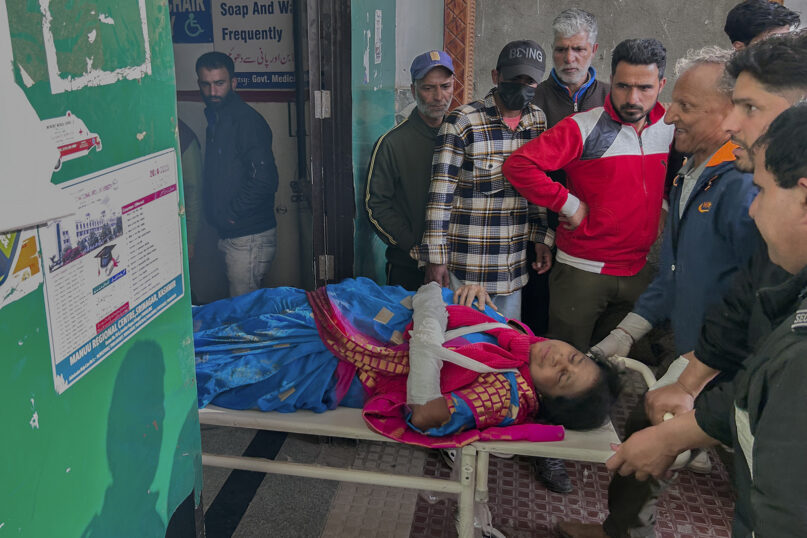
(RNS) — After escalating tensions and military attacks between India and Pakistan, a ceasefire brokered by the United States was announced Saturday (May 10). The urgency of the situation cannot be overstated.
A deadly terrorist attack on the Indian side of Kashmir late last month quickly escalated as both sides began launching missiles deep into the other’s territory — in addition to drone attacks on civilian and military targets by both sides. As fears of war between the nuclear rivals rose around the world, the two countries looked for an off-ramp and found it with the Trump administration.
The United States government brokered a ceasefire between India and Pakistan with a commitment for the two countries to sit across the table to negotiate their profound differences. The truce is vital for one crucial reason: experts believe the highest risk of nuclear conflict in the world is in South Asia due to the complicated history of conflict between the two nations, their nuclear stockpiles and possible misuse under the guise of pre-empting the other side. Peace talks are not just a luxury but a necessity.
However, despite the announced ceasefire, shelling has continued unabated in the Kashmir and Punjab regions of both countries. This fragile peace, with all its imperfections, is vital to sustain.
As someone with ancestral roots going back to the 13th century in both India and Pakistan, the recent escalation of hostilities along the border has deeply saddened me. I have a profound love for the people of both countries. However, this conflict, which is happening about 7,000 miles away, has impacted my religion, as a Sikh, and my emotional and historical connections to Pakistan and India. India has a predominant majority of Hindus, while Pakistan has an even larger preponderance of Muslims. Both countries have appreciable minorities, such as Sikhs, Christians, Jains, Ahmadiyyas and Buddhists.
So, what role might people of faith play in establishing a lasting peace in South Asia? I believe there is immense potential for positive change, and I believe it starts with us.

Paramedics carry a wounded tourist on a stretcher at a hospital in Anantnag, after assailants indiscriminately fired at tourists visiting Pahalgam, Indian-controlled Kashmir, Tuesday, April 22, 2025.(AP Photo/Dar Yasin)
First, let us remember that the people of Pakistan and India did not go to war, but their governments and armies did. Moving forward, people of faith in both countries need to counter the religiously justified ‘patriotism of hate’ being promoted by their governments. ‘Patriotism of hate’ is a term used to describe the narrative that to love India, you must hate Pakistan and its Muslim citizens, and to love Pakistan, you must hate India and its Hindu citizens. This narrative, based on religious identity, has provided legitimacy for this war on both sides. This must end through Hindus and Sikhs in India working together to confront Hindutva at home. On the other hand, Muslims of Pakistan need to free their nation from Islamic patriotism of hate.
Secondly, those Hindus and Muslims who are egging on their governments and armies to take this war further (invade and take over the other country) are playing a perilous game that can destroy their children and grandchildren. I call on them to end this ‘olympics of suffering’ — a term used to describe the efforts to portray your suffering as worse than the other’s. This dynamic of victimhood only perpetuates the conflict. We need more compassion among the Muslim citizens of Pakistan and the Hindu citizens of India so they can recognize and acknowledge the suffering on the other side of the border.
Lastly, we need a paradigm shift among the people of India. Based on my extensive travels in India and Pakistan, I have noted that the Pakistani people love Indians, but in general, resent the Indian government, especially the current Hindutva Modi government. On the other hand, in my observation, Indians are less likely to make a distinction between Pakistani people and the Pakistani government — both are conflated as enemies of India. This asymmetry has to change on the Indian side. This ‘paradigm shift’ refers to a change in perspective, where Indians start to see the people of Pakistan as separate from their government and recognize their suffering. Without this change, a one-handed handshake between India and Pakistan is bound to fail.
As a diaspora Sikh, I found myself in a unique religious dilemma during this war between India and Pakistan. Two holy sites of my religion were in danger, one on each border. Amritsar, home to the Darbar Sahib in India, was under attack by Pakistan. On the other hand, Nankana Sahib in Pakistan was under attack by India. This conflict forced me to question where my allegiance lay.
The Sikh faith was founded by Siri Guru Nanak Sahib, born in 1469 at Nankana Sahib (now in Pakistan). He lived his entire life there except for several tours to the east and west. He then settled at Karatarpur Sahib (also now in Pakistan) and died there in 1539. He was followed by nine other Sikh Gurus who traveled widely within South Asia. The Fifth Guru, Siri Guru Arjan Sahib, established Darbar Sahib, commonly called the Golden Temple, at Amritsar in the late 16th century. The 1947 partition of South Asia resulted in the creation of the Islamic nation, Pakistan, and a Hindu-majority India. Sikhs at that time chose to move from Pakistan to India, thus leaving behind over 250 historical Sikh shrines in Pakistan, including those at Nankana Sahib and Kartarpur Sahib. The city of Amritsar was given to India. As a result, the Sikh historical shrines were divided between the two nations. For over 75 years now, Sikhs from India have had limited opportunities to visit their religious sites in Pakistan. However, the diaspora of Sikhs from Western countries is more freely able to do so now.
What does my Sikh faith call upon me to do? In the Siri Guru Granth Sahib, the Sikh Scripture that Sikhs consider the word of God, there is a verse that translates as “Recognize as brave the one who struggles for the weak and helpless.”
With the offensive military campaigns by the Indian and Pakistani governments directed at each other for internal political purposes, it was clear to me that neither country was weak or helpless. India has grown to have a much larger economy than Pakistan over time. But the real challenge is that both countries are nuclear armed, and one of the recent attacks that prompted the U.S. to step in was when one of the missile hits was directly adjacent to a nuclear facility.
The weak and helpless in this war are the people of India and Pakistan — and that is who I am standing up for. It is time for them to transform the current fragile peace into a lasting peace.

Tarunjit Singh Butalia. (Photo courtesy Religions for Peace USA)
(Tarunjit Singh Butalia is executive director of Religions for Peace USA, board member of Faith in Public Life and founding trustee of the Sikh Council for Interfaith Relations. The views expressed in this commentary do not necessarily reflect those of Religion News Service.)
